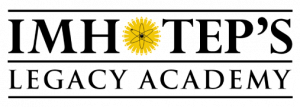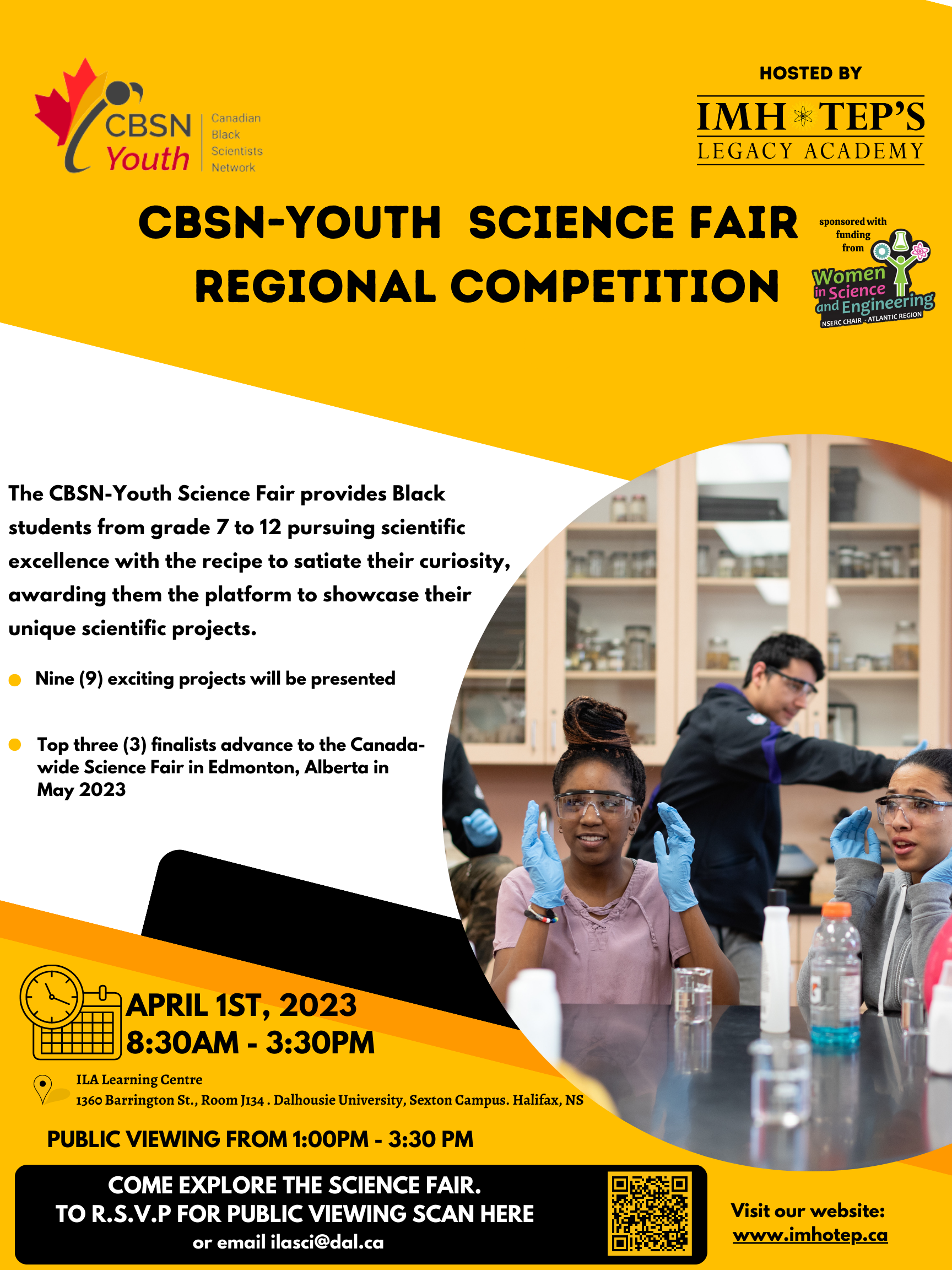On 1st April, 2023, Imhotep’s Legacy Academy (ILA) hosted the 2nd phase of Canadian Black Scientists Network Youth (CBSN, https://blackscientists.ca/ ) science fair be held in person in Nova Scotia.
The CBSN-Youth Regional Science Fair provides students pursuing scientific excellence with the recipe to satiate their curiosity, awarding them the platform to showcase their unique qualities.
For the phase 2 competition this year, we were proud to have nine (9) Black scientists participating in the regional competition. 9 exciting project presentations were presented at the fair, which will saw the top three (3) advancing to the Canada-Wide Science Fair.
CBSN awarded prizes to the top three (3) students from this stage (phase 2).
- 1st Prize – $300 Mastercard gift card
- 2nd Prize – $200 Sportchek gift card
- 3rd Prize – $100 Halifax Shopping Mall gift card
Each top student will also be fully sponsored to travel to Edmonton, Alberta in May, 2023 to participate in the Canada-Wide Science Fair
This event is proudly sponsored with funding from the WISE Atlantic Partnerships Program




